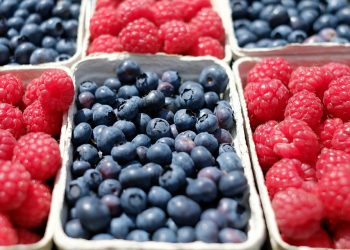Sleep-friendly diet tips can transform your nights from restless tossing and turning into peaceful slumber. If you’ve ever stared at the ceiling, counting sheep in vain, you know how crucial good sleep is for your well-being. It’s not just about feeling refreshed; it’s about being your best self every day.
In this article, we’ll explore seven practical diet tips that can help you embrace restful nights. These aren’t just theories; they’re backed by research and real-life experiences. So, grab a cozy blanket, and let’s dive in!
Contents
- Understanding the Sleep-Diet Connection
- Tip 1: Embrace Complex Carbs
- Tip 2: Don’t Skip the Protein
- Tip 3: Keep Hydration in Check
- Tip 4: Choose Sleep-Inducing Snacks
- Tip 5: Avoid Heavy Meals Before Bed
- Tip 6: Limit Caffeine and Sugar
- Tip 7: Discover the Power of Herbal Teas
- Putting It All Together
- Bottom Line
- FAQs
Understanding the Sleep-Diet Connection
Before we jump into the tips, let’s take a moment to understand why your diet matters for sleep. Your body relies on food to function, and what you eat directly affects your sleep quality. Certain foods can support the production of sleep hormones, while others may leave you restless and wide awake.
Eating a balanced diet isn’t just about calories; it’s about nurturing your body with the right nutrients. This is your life, and you deserve to feel energetic and vibrant. You want to wake up feeling rejuvenated, ready to tackle the day.
Tip 1: Embrace Complex Carbs
Complex carbohydrates are your friends when it comes to sleep. They help increase the availability of tryptophan, an amino acid that promotes sleepiness. Think of foods like whole grains, oats, and quinoa.
- Why it works: Complex carbs release glucose slowly into the bloodstream, preventing blood sugar spikes that can disrupt sleep.
- Best options: Whole-grain bread, brown rice, and sweet potatoes.
Tip 2: Don’t Skip the Protein
Proteins are essential for your body, and they play a role in sleep too. Foods high in protein, like turkey, chicken, and fish, contain tryptophan, which your body converts into serotonin and melatonin, both key players in sleep regulation.
- Why it works: A protein-rich dinner can help you feel satiated and promote the production of sleep hormones.
- Best options: Lean meats, beans, and nuts.
Tip 3: Keep Hydration in Check
Staying hydrated is crucial, but timing matters. Drinking too much water right before bed can lead to frequent trips to the bathroom, breaking your sleep pattern. Aim to hydrate throughout the day.
- Why it works: Proper hydration improves overall bodily function, including digestion, which can impact sleep.
- Best options: Water, herbal teas, and hydrating fruits like watermelon.
Tip 4: Choose Sleep-Inducing Snacks
If you find yourself feeling peckish before bedtime, opt for sleep-friendly snacks. Foods rich in magnesium and potassium can help relax your muscles and promote restful sleep.
- Why it works: Certain nutrients can calm your nervous system, making it easier to drift off.
- Best options: Almonds, bananas, and yogurt.
Tip 5: Avoid Heavy Meals Before Bed
Eating a large, heavy meal late at night can make it hard for your body to wind down. Digestion requires energy, and too much food can keep your body working instead of resting.
- Why it works: A lighter meal allows your body to focus on sleep rather than digestion.
- Best options: A small salad, a piece of fruit, or a light soup.
Tip 6: Limit Caffeine and Sugar
Caffeine is a known sleep disruptor. While it can give you a quick boost during the day, consuming it too late can keep you awake at night. Likewise, high sugar intake can lead to energy crashes, leaving you restless.
- Why it works: Reducing these stimulants can promote a deeper, more restorative sleep.
- Best options: Limit coffee and sodas in the afternoon and opt for natural sweeteners when possible.
Tip 7: Discover the Power of Herbal Teas
Herbal teas can be a delightful addition to your evening routine. Chamomile, valerian root, and passionflower are known for their calming properties.
- Why it works: These teas can help soothe your mind and prepare your body for sleep.
- Best options: Chamomile tea, valerian root tea, or a calming blend with lavender.
Putting It All Together
Adopting these sleep-friendly diet tips isn’t about strict rules; it’s about making mindful choices that align with your lifestyle. Small changes can lead to significant improvements in your sleep quality.
Here’s a quick recap of your game plan:
- Embrace complex carbs for steady energy.
- Include protein to boost your sleep hormones.
- Stay hydrated, but be mindful of timing.
- Snack on sleep-inducing foods before bed.
- Avoid heavy meals in the evening.
- Limit caffeine and sugar intake.
- Enjoy herbal teas to wind down.
Bottom Line
You have the power to transform your sleep through your diet. By making intentional choices, you’ll find yourself drifting off more easily and waking up refreshed. Remember, this journey is about you—your body, your mind, your life.
Take control of your nights, and let those restful hours become a sanctuary for rejuvenation. Are you ready to embrace a sleep-friendly diet? Your best nights await!
FAQs
1. How long before bed should I stop eating?
Aim to finish eating at least 2-3 hours before bedtime to allow your body to digest.
2. Can I drink alcohol before bed?
While alcohol might make you feel drowsy, it can disrupt your sleep cycle. It’s best to limit intake.
3. Are there specific foods to avoid for better sleep?
Yes, avoid spicy or acidic foods, as they can cause discomfort, and limit caffeine and sugar, particularly in the evening.
4. Is it necessary to eat a bedtime snack?
Not necessarily, but a light snack can help if you’re genuinely hungry. Focus on sleep-inducing options.
Your journey to better sleep starts with a few small changes. Take the first step tonight!
Get Your FREE Natural Health Guide!
Subscribe now and receive our exclusive ebook packed with natural health tips, practical wellness advice, and easy lifestyle changes — delivered straight to your inbox.














